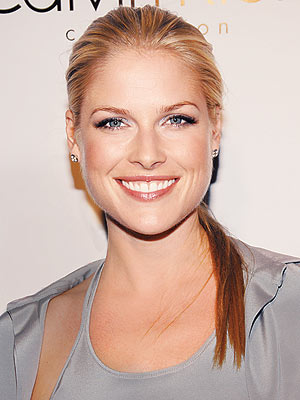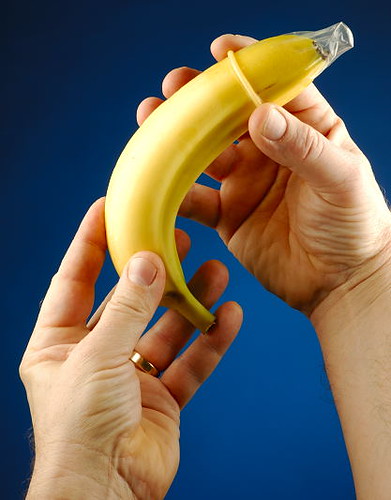I didn't really know what the group was about so I attended their latest meetup about a week ago to find out. They call it 'Five On Food', where basically, five presenters have the opportunity to share what projects they're working on, theoretically in the realm of its name, food+tech.
Highlights of the event included these three speakers from..:
 1) WindowFarms, which are vertical, hydroponic, modular, low-energy, high-yield edible window gardens built using low-impact or recycled local materials.
1) WindowFarms, which are vertical, hydroponic, modular, low-energy, high-yield edible window gardens built using low-impact or recycled local materials.Goal 1: Empower urban dwellers to grow some of their own food inside year-round.
Goal 2: Create a web platform that allows citizens to collaboratively innovate globally toward more sustainable cities using locally available materials to suit locally specific conditions, a process we call R&D-I-Y.
R&D-I-Y: Mass Collaboration to Solve Environmental Problems:
The ultimate aim of the Windowfarms project is not primarily to create a perfected physical object or product. Rather, the targeted result is for participants to have a rewarding experience with crowdsourced innovation. The team is interested to learn from participants' experience as they design for their own microenvironments, share ideas, rediscover the power of their own capacity to innovate, and witness themselves playing an active role in the green revolution.
The windowfarms project approaches environmental innovation through web 2.0 crowdsourcing and a method called R&D-I-Y (research and develop it yourself). Big Science’s R&D industry is not always free to take the most expedient environmental approach. It must assume that consumers will not make big changes. Its organizational structure tends toward infrastructure-heavy mass solutions. A distributed network of individuals sharing information can implement a wide variety of designs that accommodate specific local needs and implement them locally. Ordinary people can bring about innovative green ideas and popularize them quickly. Web theorists like Clay Shirky claim that this capacity to “organize without hierarchical organization” will be a fundamental shift in our society brought about by the web over the coming decades.
Fresh uses social networking, such as Facebook and Twitter, to help spread the word.
 3) NOAH [Networked Organisms And Habitats], which is a tool that nature lovers can use to explore and document local wildlife and a common technology platform that research groups can use to harness the power of citizen scientists everywhere.
3) NOAH [Networked Organisms And Habitats], which is a tool that nature lovers can use to explore and document local wildlife and a common technology platform that research groups can use to harness the power of citizen scientists everywhere. An example of one of their current missions is called Vegetable Varieties for Gardeners, where users can share info with fellow gardeners to learn what can grow best in their garden.
Today, I went to another meetup event for another group- totally unrelated- on media and publishing. Co-founder of Foursquare and expert in mobile apps, Naveen Selvadurai, discussed key ingredients that go into creating a fun digital experience.
In case you don't know what Foursquare is, it's a mobile app that's focused on fostering social meetups/gatherings/community and learning/exploration/discovery of cities, particularly one's own, using game-based theory. The gaming aspect basically acts as an incentive for users— users 'check-in' to locations and when they meet certain criteria, they can win various badges [action->reward].
 One such badge is called the Gym Rat, which you can earn if you check in to venue tagged 'gym' 10 times in 30 days. At one point in his presentation, Selvadurai shares a user's comment, which said his desire for this badge got him to go to the gym and is healthier because of it. Yoga studios, parks, farmers' markets, health food stores, restaurants with healthy fare, are other examples of how this app can and has been influential within communities, by themselves no less.
One such badge is called the Gym Rat, which you can earn if you check in to venue tagged 'gym' 10 times in 30 days. At one point in his presentation, Selvadurai shares a user's comment, which said his desire for this badge got him to go to the gym and is healthier because of it. Yoga studios, parks, farmers' markets, health food stores, restaurants with healthy fare, are other examples of how this app can and has been influential within communities, by themselves no less.While these four ventures are very different from each other in content, they do all have an underlying common principle: that is, social media as a means to influence peoples' [each others'] behaviors. And isn't that what public health/education is all about?
[Rhetorical question.] Yes! Public health and education is about communication and influence. Social media is a [or, currently, the?] major portal & tool for both. We can't deny, overlook, or be ignorant of it anymore. It's time to get with the program, folks, there's a difference [many, actually] to be made.
Happy Healthy Juicy Wake UP! Social Technology [4BetterHealth], umm, rah!
 Who is Ali Larter? I've seen her name a bunch of times and since she is referred to under the assumption that people know who she is, I still don't know who she is nor would I be able to identify her if she were in a lineup of blonds. She's blond— that much I know. So, to put an end to the mystery, yet, more so to know who I'm referring to for the start of this post, I Googled her. [For those of you who are as clueless as I, she's an actress and has actually appeared in a
Who is Ali Larter? I've seen her name a bunch of times and since she is referred to under the assumption that people know who she is, I still don't know who she is nor would I be able to identify her if she were in a lineup of blonds. She's blond— that much I know. So, to put an end to the mystery, yet, more so to know who I'm referring to for the start of this post, I Googled her. [For those of you who are as clueless as I, she's an actress and has actually appeared in a 

 First, there was
First, there was 





 It's (almost) 10pm and the woman sitting next to me does know where her child is because, after a slight yawn, her little one asks, 'Mommy, where's my cheese doodles?', in the cutest of voices no less.
It's (almost) 10pm and the woman sitting next to me does know where her child is because, after a slight yawn, her little one asks, 'Mommy, where's my cheese doodles?', in the cutest of voices no less. With parenting, comes great responsibility. Are they safe? Are they getting what they need? Are they healthy?
With parenting, comes great responsibility. Are they safe? Are they getting what they need? Are they healthy? A shopping mall in China has "opened a special store for [WOMEN ONLY] to break all kinds of things to relieve pressure and bad mood for a minute in Shenyang", according to
A shopping mall in China has "opened a special store for [WOMEN ONLY] to break all kinds of things to relieve pressure and bad mood for a minute in Shenyang", according to 

 The weather people must’ve had a field day today with a lovely high of 103degF breaking the 101degF record way back in 1999.
The weather people must’ve had a field day today with a lovely high of 103degF breaking the 101degF record way back in 1999.



 When we think ‘physical education’, we think: manly female gym teacher, locker rooms, goofing off, class without tests..
When we think ‘physical education’, we think: manly female gym teacher, locker rooms, goofing off, class without tests.. Girls, for example, learn that they aren’t naturally beautiful and so, fueling a multi-billion $$ industry, they wear makeup, day.in.&.day.out. Kids, for example, learn what’s cool and then themselves, drink, smoke, use, wear, listen, watch, act whatever it is that they learned. What we learn affects our behavior, for better or for worse.
Girls, for example, learn that they aren’t naturally beautiful and so, fueling a multi-billion $$ industry, they wear makeup, day.in.&.day.out. Kids, for example, learn what’s cool and then themselves, drink, smoke, use, wear, listen, watch, act whatever it is that they learned. What we learn affects our behavior, for better or for worse. I mean, it’s not my job to force feed people [here doesn't come the choo choo of broccoli..] but just be convincing enough that they’ll do it themselves, on their own. *Like*, you could be the best parent in the world but that doesn’t necessarily guarantee your kid won’t turn out to be a criminal. Over the years I guess I’ve come to accept it as true, though: my actions/purpose as an educator is geared toward [un-forceful, yes, but nonetheless] behavior change [for the better].
I mean, it’s not my job to force feed people [here doesn't come the choo choo of broccoli..] but just be convincing enough that they’ll do it themselves, on their own. *Like*, you could be the best parent in the world but that doesn’t necessarily guarantee your kid won’t turn out to be a criminal. Over the years I guess I’ve come to accept it as true, though: my actions/purpose as an educator is geared toward [un-forceful, yes, but nonetheless] behavior change [for the better]. Marketers—think ads/commercials, product placements etc.
Marketers—think ads/commercials, product placements etc.